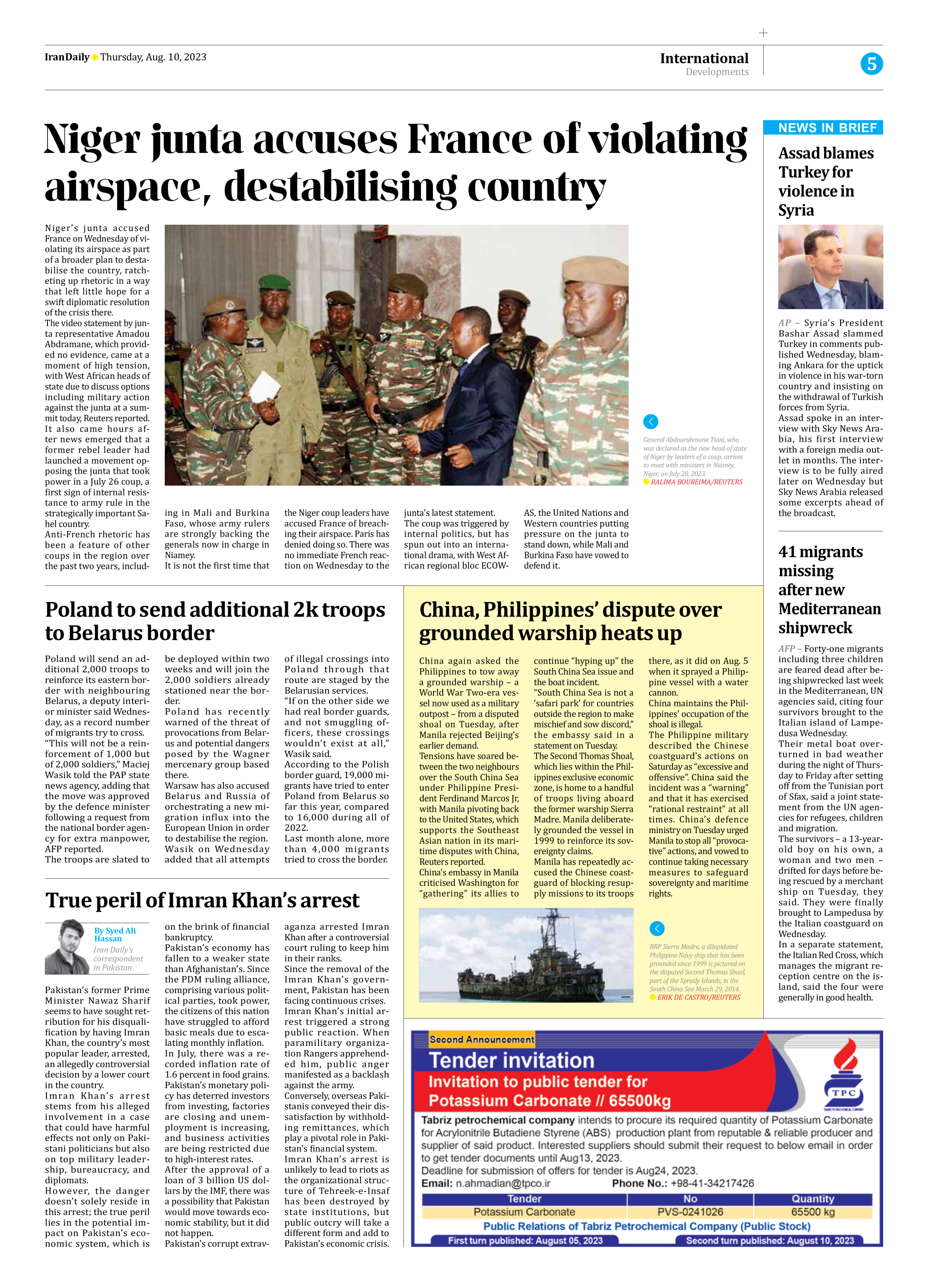
True peril of Imran Khan’s arrest
By Syed Ali Hassan
Iran Daily’s correspondent in Pakistan
Pakistan’s former Prime Minister Nawaz Sharif seems to have sought retribution for his disqualification by having Imran Khan, the country’s most popular leader, arrested, an allegedly controversial decision by a lower court in the country.
Imran Khan’s arrest stems from his alleged involvement in a case that could have harmful effects not only on Pakistani politicians but also on top military leadership, bureaucracy, and diplomats.
However, the danger doesn’t solely reside in this arrest; the true peril lies in the potential impact on Pakistan’s economic system, which is on the brink of financial bankruptcy.
Pakistan’s economy has fallen to a weaker state than Afghanistan’s. Since the PDM ruling alliance, comprising various political parties, took power, the citizens of this nation have struggled to afford basic meals due to escalating monthly inflation.
In July, there was a recorded inflation rate of 1.6 percent in food grains.
Pakistan’s monetary policy has deterred investors from investing, factories are closing and unemployment is increasing, and business activities are being restricted due to high-interest rates.
After the approval of a loan of 3 billion US dollars by the IMF, there was a possibility that Pakistan would move towards economic stability, but it did not happen.
Pakistan’s corrupt extravaganza arrested Imran Khan after a controversial court ruling to keep him in their ranks.
Since the removal of the Imran Khan’s government, Pakistan has been facing continuous crises.
Imran Khan’s initial arrest triggered a strong public reaction. When paramilitary organization Rangers apprehended him, public anger manifested as a backlash against the army.
Conversely, overseas Pakistanis conveyed their dissatisfaction by withholding remittances, which play a pivotal role in Pakistan’s financial system.
Imran Khan’s arrest is unlikely to lead to riots as the organizational structure of Tehreek-e-Insaf has been destroyed by state institutions, but public outcry will take a different form and add to Pakistan’s economic crisis.







